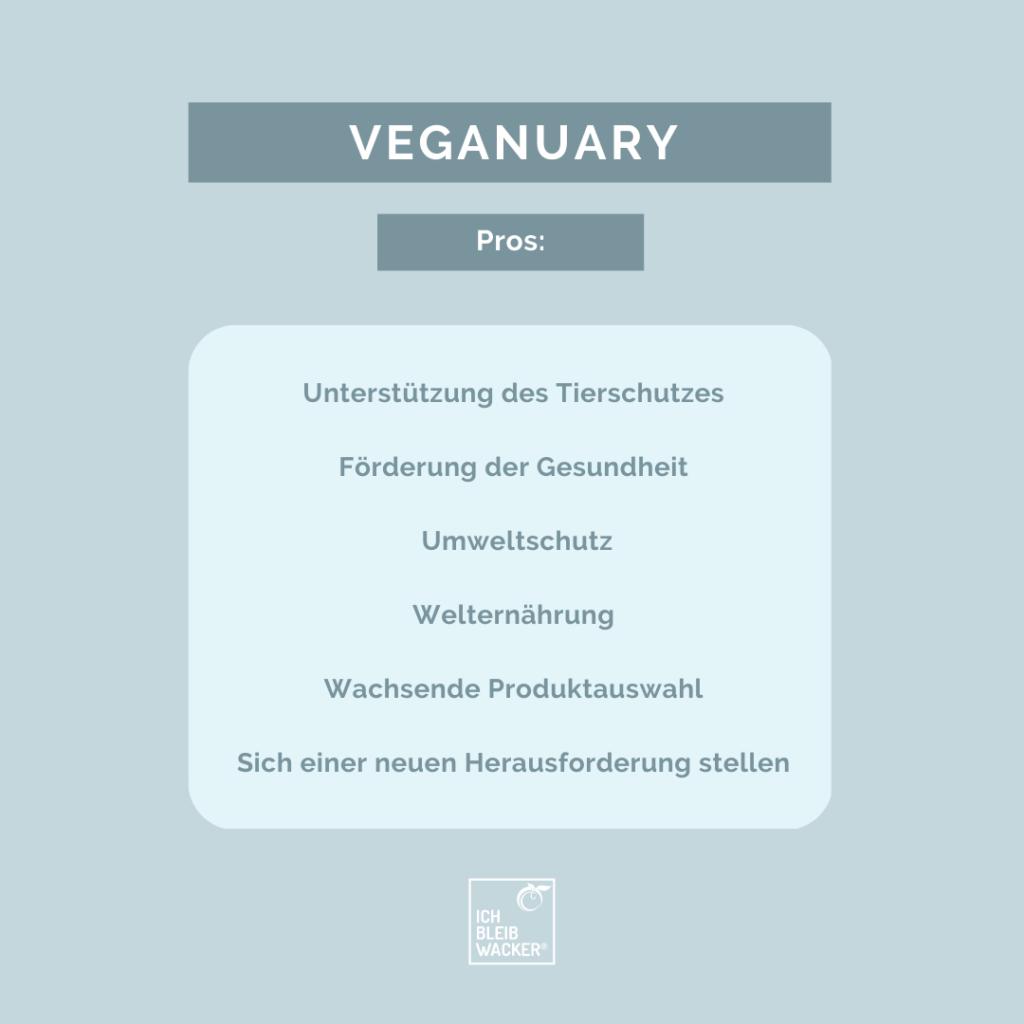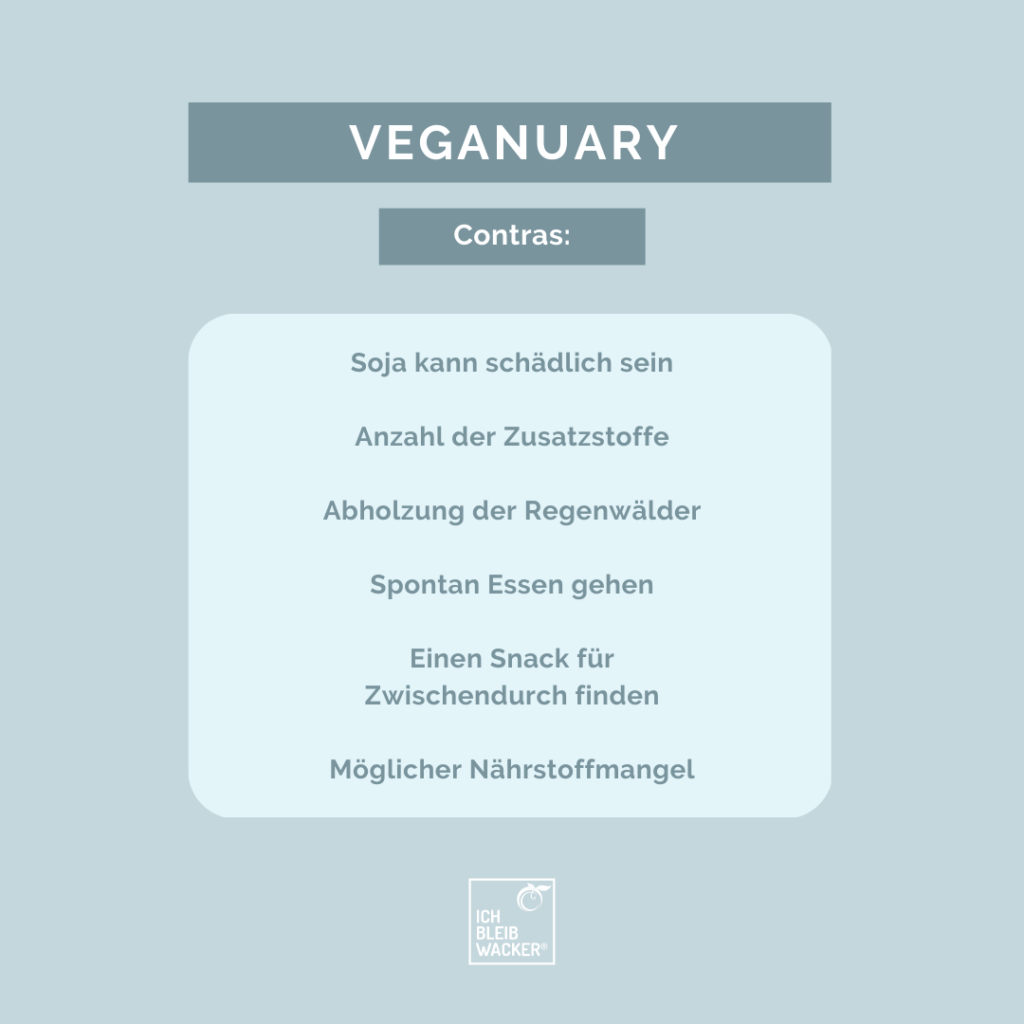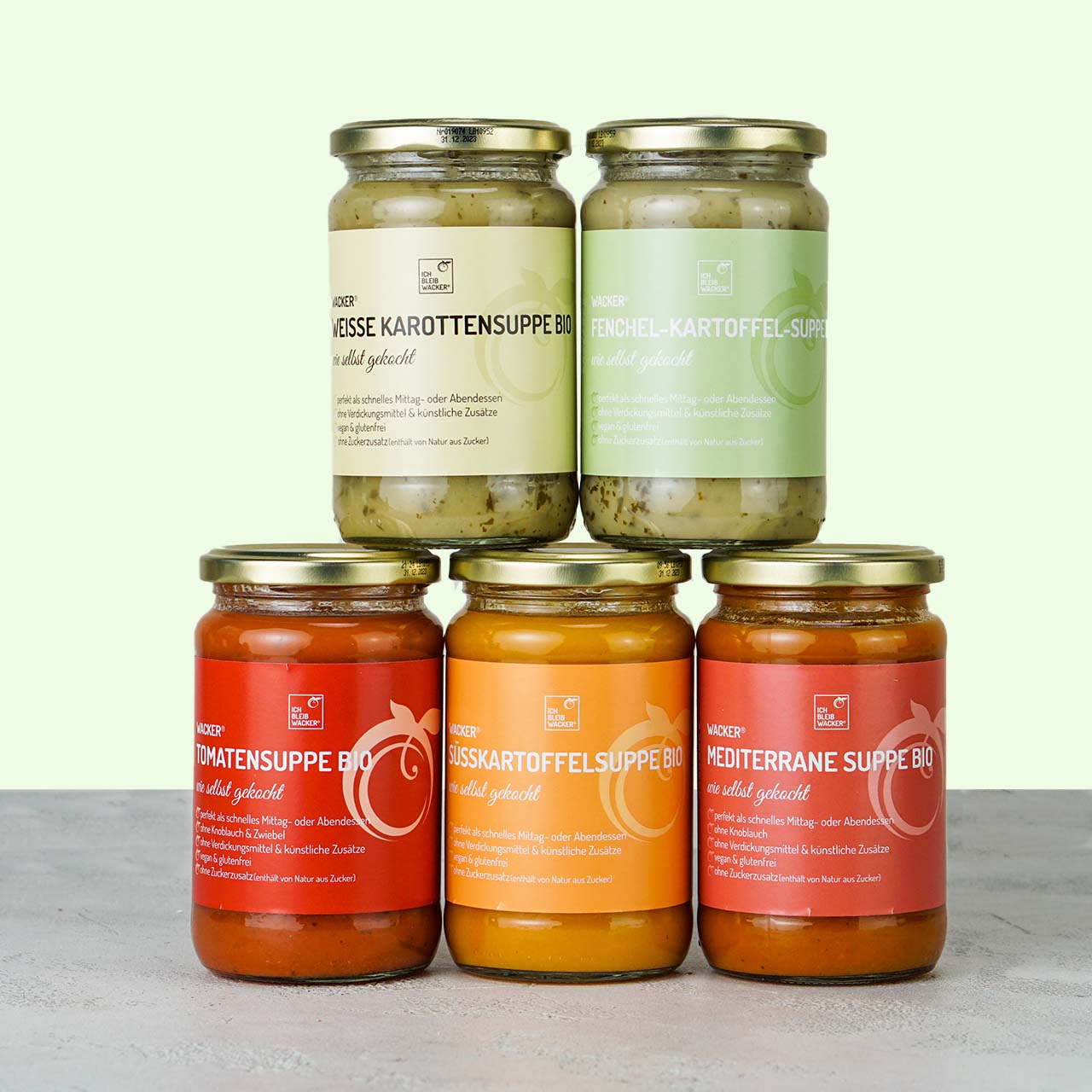It's that time again! It's January and for many that means time for a month-long change of diet! The Veganuary has long been an indispensable part of this. In recent years, the vegan diet has experienced a huge upswing and has almost become a trend. Vegan January therefore serves as an incentive and introduction to vegan nutrition for many. Because at the beginning of the year, motivation and drive are usually at their highest and people are willing to do everything differently and better this year.
But where does the Veganuary actually come from and what is behind it?
Veganuary has been around since 2014 and is a non-profit organisation and campaign that encourages people around the world to go vegan in January. So for one month, or longer if you like, people do without all animal products and eat exclusively a plant-based diet.
At Veganuary, however, the focus is not only on vegan nutrition and its influence on our health. The organisers also advertise that a purely plant-based diet has a positive effect on our environment, counteracts the climate crisis and does not further industrial animal husbandry and animal suffering. So the Veganuary is not just about a short- or long-term change of diet. It is above all about ethical aspects that are leading more and more people to change their diet and also lifestyle.

Become a do-gooder in one month!
Sounds great, doesn't it? Unfortunately, it's not that simple. But why it might be worthwhile for you and your environment to eat vegan for a month and take part in the Veganuary, and what speaks against it, we have compared in some pros and cons:

Pros:
- Supporting animal welfare: Vegans avoid as much as possible that animals suffer or are killed for them, as they feed exclusively on non-animal food.
- Promoting health: A vegan diet can help prevent many diseases such as diabetes, cancer or high blood pressure.
- Environmental protection: One's own ecological footprint can be reduced through a plant-based diet. According to a British study by Oxford University, each person in Germany produces an average of eleven tonnes of greenhouse gases annually. A vegan diet saves two tonnes per year, which is equivalent to eight economy class flights between London and Berlin. A vegan diet and lifestyle therefore protects our planet.
- World food supply: Most agricultural land is used to grow animal feed. If crops were grown for human consumption instead of fodder, far fewer fields would be needed and 80 % of the land used today would be freed up.
- Growing product selection: It can hardly be denied that the number of vegan products is becoming more and more diverse. Especially in supermarkets, the number of vegan products is increasing more and more. From cheese to meat alternatives to tasty snacks. Eating vegan is much easier today than it was just a few years ago.
- Take on a new challenge: Even though humans are often described as creatures of habit, we are not afraid of evolving and daring to try something new. Those who are critical of vegan nutrition should jump over their own shadow and try it out for themselves. Who knows what surprise this new challenge will bring 😊

Contras:
- Soy can be harmful: Soy is an integral part of the vegan diet. It contains predominantly polyunsaturated omega-6 fatty acids, which promote inflammation in the body when consumed in excess. As with other foods, the same applies here: It's the quantity that counts.
- Number of additives: If you look at the back of vegan products, you are often overwhelmed, because they often consist of a large number of ingredients and additives. Most people have never heard of more than half of them, which naturally arouses mistrust in the consumer. Allergy sufferers in particular should be well informed about the exact ingredients of vegan meat, milk and cheese alternatives. The good news: vegan nutrition also works wonderfully without substitute products. Just take a look at our Recipe category Here you will find exclusively vegan recipes without substitutes.
- Deforestation of the rainforests: Rainforests are cleared for the cultivation of soy and thus animals are deprived of their habitat. Here it is important to know that soy from cleared rainforest areas is mainly used in feed for farm animals. The soy that is used and processed for vegan products usually comes from organic and/or European cultivation.
- Going out for a spontaneous meal: Even though the vegan offer in restaurants is growing, it is not yet fully exhausted. It is therefore advisable to take a look at the menu before choosing a restaurant.
- A snack for in between: A quick trip to the bakery may not be so easy on a purely plant-based diet. Ingredients such as eggs or milk powder can be found in many baked goods. So it's best to ask in advance whether the baked goods are free of animal products.
- Possible nutrient deficiency: A vegan diet can lead to a nutrient deficiency. A vitamin B12 or iron deficiency is usually associated with a vegan diet. However, the former can also occur in meat eaters. In general, it is advisable to have a blood count done every few years to prevent possible nutrient deficiencies or to counteract them through dietary adjustments or supplements.
Veganuary: Yes or no?
There are some arguments in favour of a vegan diet and participation in the Veganuary, but also against it. You have to find out for yourself which arguments outweigh the others and are important to you. However, nothing stands in the way of participating in the Veganuary. Quite the opposite. Taking on a new challenge for a month can be very enriching in many ways. So it is definitely worth trying it out!
In our Shop you'll find exclusively vegan products and don't have to do without anything: Our creamy soups taste good without cream & co. too! 🙂

Order now!
Image Tofu skewers: Adobe Stock, nikolaydonetsk, #553521487
Sources: Albert Schweitzer Foundation, Federal Centre for Nutrition, Utopia, Veganuary





Pingback: How to make your New Year's Eve more sustainable - Wacker Stories